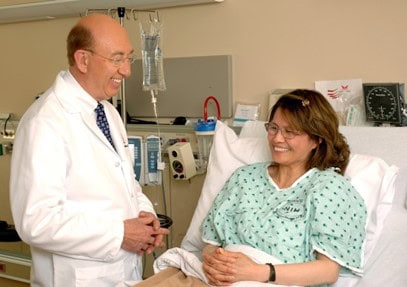
30 Jul High-Risk Individuals in Gastroenterology: Special Considerations and Guidelines
When it comes to colon cancer, early detection can be lifesaving. Colonoscopies, the gold standard in colorectal screening, offers a direct look at the colon and rectum, allowing doctors to identify and remove precancerous polyps. For individuals with a family history of GI cancers, or other risk factors discussed below, these procedures become even more critical. The following article explores the special considerations and guidelines for high-risk individuals in gastroenterology and why they might need earlier or more frequent testing.
Understanding Risk Factors for Colon Cancer
Certain factors can increase a person’s risk of developing colon cancer, warranting a more proactive approach to screening. These risk factors include but are not limited to:
- Family History: Having a first-degree relative (parent, sibling, or child) with colon cancer increases your own risk. The probability is even higher if multiple family members are affected or if the relative was diagnosed at a young age.
- Genetic Syndromes: Certain genetic conditions, such as Lynch syndrome (hereditary nonpolyposis colorectal cancer) or familial adenomatous polyposis (FAP), dramatically increases the risk of developing cancer.
- Personal History of Polyps or Cancer: If you’ve had polyps or were diagnosed with other cancers in the past, such as breast, ovarian, or pancreatic cancer, puts you at higher risk
- Inflammatory Bowel Disease (IBD): Conditions like Crohn’s disease and ulcerative colitis increase the risk of colon cancer over time.
In addition to these, other risk factors include smoking, excessive alcohol consumption, being overweight or obese, having type 2 diabetes, or leading a sedentary lifestyle—all of which can significantly increase your risk. If any of these apply to you, it’s crucial to consult a healthcare professional. They can create a personalized screening plan to help catch potential health issues early and implement preventative measures.
Special Guidelines
For people at average risk, the American Cancer Society recommends starting colonoscopy screening at age 45 and repeating every 10 years if results are normal. However, high-risk individuals have different guidelines. Here are some special considerations:
- Earlier Screening: High-risk individuals should start screenings earlier than the general population. For example, those with Lynch syndrome may need to start as early as their 20s, while those with a family history of colon cancer might begin around 40 or earlier, depending on when their relative was diagnosed, among other factors.
- More Frequent Screenings: While the standard interval for average-risk individuals is 10 years, higher-risk individuals may need screenings every 1-5 years, depending on their specific circumstances. Those with Lynch syndrome often need screenings every 1-2 years.
- Additional Surveillance: Additionally, high-risk individuals might require additional monitoring, such as regular imaging or specific genetic testing, to assess their ongoing risk of developing certain GI cancers.
It’s essential to work with a gastroenterologist to determine the most appropriate screening schedule for your personal risk profile.
Benefits of Early Detection
Early and frequent screening procedures offer several key benefits for high-risk individuals:
- Early Detection and Prevention: Screening tests can detect precancerous polyps, enabling doctors to remove them before they have a chance to progress. This proactive strategy dramatically lowers the risk of developing cancer.
- Monitoring Existing Conditions: For individuals with inflammatory bowel disease or other chronic conditions, regular screenings can help monitor disease progression, intestine damage and detect any early signs of cancer.
- Tailored Risk Management: By working closely with healthcare professionals, high-risk individuals can create a personalized screening and surveillance plan that meets their unique needs, benefiting their overall health and wellbeing.
Conclusion
For individuals at greater risk of developing GI cancers, working with a gastroenterologist to develop a personal care plan is an essential tool in the fight against colon and other GI cancers. Understanding your risk factors and following a customized screening schedule can make a significant difference in your long-term health. If you have a family history of colon cancer, a genetic syndrome, or other risk factors, don’t wait to discuss your screening needs with a healthcare professional. Early detection can save lives, while providing peace of mind and a proactive approach to health.




